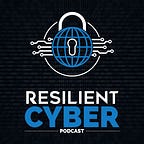Welcome to Resilient Cyber!
If you’re interested in FREE content around AppSec, DevSecOps, Software Supply Chain and more, be sure to hit the “Subscribe” button below.
Join 5,000+ other readers ensuring a more secure digital ecosystem.
If you’re interested in Vulnerability Management, you can check out my book “Effective Vulnerability Management: Managing Risk in the Vulnerable Digital Ecosystem” on Amazon. It is focused on infusing efficiency into risk mitigation practices by optimizing resource use with the latest best practices in vulnerability management.
- First off, for those that don't know you or your work, would you mind telling us a bit about your background?
- You recently published a paper titled "Secure-by-Design at Google" which got a lot of attention. Can you tell us about the paper and some of the key themes it emphasizes?
- In the paper you discuss some of the unique aspects of software that are different from mass-produced physical systems. Such as their dynamic and iterative nature. On one hand you mention how the risk of introducing a new defect over time for a physical system after manufacturing is low, unlike software. I know Google are big proponents of DORA for example, and past papers have shown organizations that are capable of routinely delivering software to production at-scale also have more resilient outcomes, this seems to be both a risk and a benefit of software over physical systems?
- You also discuss the need for Secure Default Configurations. Historically it feels like producers have erred on the side of functionality and usability over secure default configurations, and we have even heard CISA begin using terms like "loosening guides" over hardening guides. Do you feel the two concepts of security and usability at inherently at odds, or need to be?
- One aspect of your paper that really jumped out to me is that "developers are users too". I feel like this is even more pertinent with both the rise of software supply chain attacks and the realization that most defects are introduced by Developers and also they are best positioned to address flaws and vulnerabilities. How critical do you think it is to design systems with this in mind?
- Some may pushback and say it is easy for Google to say advocate this approach of Secure-by-Design due to their incredible expertise and resources, but obviously, and conversely, Google has a scale in terms of challenges that most organizations can't fathom. How does Google balance the two?
- What role do you think leading software suppliers and organizations such as Google have to play when it comes to ensuring a more resilient digital ecosystem for everyone?












